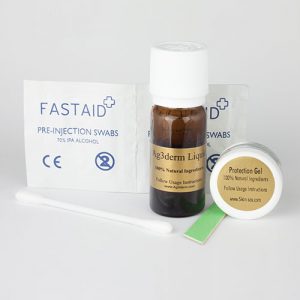I am quite sure that if you are or had been suffering from age spots or other problems involving the skin, you most certainly have come across the term hydroquinone. But if you are lucky enough to not have handled age spots or other skin problems, this must be your first rendezvous with this term. Hydroquinone is a chemical compound which is used in various ways but most notably used in the field of medicine particularly dermatology. Because of its capability to “whiten” the skin by minimizing melanin production, it is considered to be an effective “whitening” tool. Specifically, hydroquinone can be used in lightening various skin lesions such as age spots, scars from pimples, freckles or birth marks or in making uneven skin color even.
Topical creams for various skin conditions might be composed of hydroquinone exceptionally or added to other chemicals. You can select from topical creams that have two percent hydroquinone, four percent hydroquinone or even greater percentage of hydroquinone content. In other countries, you can buy topical creams which have two percent hydroquinone without presenting a doctor’s order. But hydroquinone four percent and above can be availed of only if you have a doctor’s prescription. And other doctors themselves sell these topical applications that have higher concentrations of hydroquinone.
The reason why hydroquinone is used in dermatology is chiefly because of its ability to decrease the generation of the pigment naturally-occuring in the skin, melanin – giving our skin its color. This is made possible due to its ability to stop tyrosinase – an enzyme – from producing melanin. Its effects are usually evident after a month of using hydroquinone. Therefore, doctors recommend this treatment modality for its success and considerably harmless property.
But it is not really that harmless because it has several negative effects. Since the mechanism behind hydroquinone is the decline of melanin production, the skin applied with hydroquinone becomes more and more exposed to the deleterious UVA and UVB rays of the sun. As a result, users become more prone in developing skin cancer. Since the liver and the kidneys work twenty-four hours to metabolize and excrete the drugs we deposit into our bodies, damage to these organs is one adverse effect of hydroquinone and almost other drugs as well. Like also any other medication, this can possibly cause allergic reactions manifested by breathing difficulties and inflammation of the face and the oral organs. Some might mistakenly see sunburns as age spots or skin hyper-pigmentation and unfortunately apply hydroquinone on them – making the condition . Skin discoloration from the normal color into blue or black, skin irritation, itching and redness, along with the appearance of abscesses|pustules|vesicles] are still some of hydroquinone’s unwanted effects.

